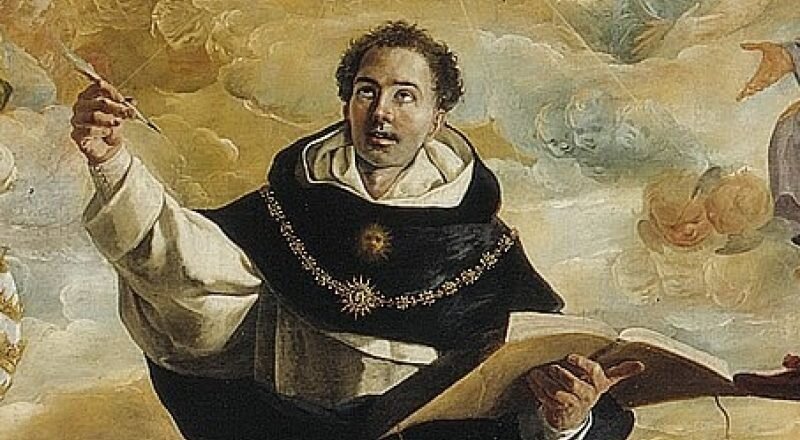The latest issue of the American Catholic Philosophical Quarterly, vol. 94, no. 3 (2020) has various articles that may be of interest to readers of this site.
Several articles consider familiar themes from Thomistic and scholastic philosophy. First, Christopher A. Bobier’s essay “Aquinas on the Emotion of Hope: A Psychological or Theological Treatment?” considers whether St. Thomas’s account of the emotion of hope is theologically informed, concluding that it is. Bobier’s exposition examines in detail one key element to make this connection: why the soul’s passio or emotion of hope is limited in its object to arduous goods, when at least colloquially we say that we “hope for” things that do not seem arduous. To Bobier’s mind, “Aquinas’s limitation of the emotion of hope to future arduous goods that are possible to attain allows for a similarity between theological and emotional hope, a similarity that otherwise would not be there.” This result, however, still comes with the qualification that St. Thomas’s account of hope, even limited to arduous goods, still has non-theological, philosophical grounds.
The arduous good of theological hope, of course, is the attainment of eternal life by the predestined with God’s help. “Was Báñez a Bañecian?” by David Torrijos-Castrillejo aims to determine Domingo Báñez’s “personal opinion regarding the ontology of physical premotion without presupposing the later development of Bañecian doctrine.” In opposition to the more typical interpretation of Thomists he finds in the contemporary literature, and relying on the work of Beltrán de Heredia, OP, among others, Torrijos-Castrillejo argues that Báñez did not consider physical premotion a tertium quid entity between God’s creative action and the human action. Rather, “Báñez only tries to formulate anew the thesis defended by Aquinas himself: namely, that the only numerically new effect of divine motion is the deliberate human action that God and created free will produce together.”
J. Caleb Clanton and Kraig Martin, in “William of Ockham, Andrew of Neufchateau, and the Origins of Divine Command Theory,” place the blame for being the medieval progenitor of divine command theory upon Andrew of Neufchateau rather than William of Ockham. They review the claim that Ockham can be read in a more nuanced way to relieve him of blame for this account of natural law ethics, and then, relying upon and extending the work of Janine Marie Idziak, they argue that Andrew clearly and thoroughly adopts and defends the view that “all features of morality—value, obligation, and natural law itself—arise in virtue of the free decrees of God’s will.”
Shifting from classic debates in perennial philosophy to a contemporary one, the issue also features a book discussion of Aristotle’s Revenge: The Metaphysical Foundations of Physical and Biological Science (reviewed by Thomistica last year). The author, Edward Feser, provides a brief précis of the book followed by the criticisms of philosopher Robert C. Koons and physicist Stephen M. Barr. These articles were previously given as papers at the most recent meeting of the American Catholic Philosophical Association to a standing-room-only crowd.
Koons, sympathetic to the book’s project overall, raises various challenges on behalf of the B-theory of time—sometimes called the “tenseless” theory of time—in response to Feser’s view that there is a more natural place in the Aristotelian philosophy of time for the A-theory and presentism—a “tensed” theory of time, where all that exists only exists in the present. Koons’s exposition turns on the B-theorist’s interpretation of the six key Aristotelian commitments that Feser highlights: time as the measure of change, the successive nature of time and change, the successive existence of time, the existence of time outside the mind, the continuity of time and change, and the nature of change as actualizing potentialities. Barr, not as sympathetic as Koons to Feser’s project, criticizes select aspects of the book: its method being too aprioristic, its putative misunderstanding of modern physics’s account of space, and for the inaccuracy and inapplicability, in the inorganic realm, of the concept of substantial form and its unicity. Feser’s response systematically considers all nine of these points raised by Koons and Barr. I leave it to readers to judge the results. At the very least, the discussion illustrates both the difficulties faced by those who, like Feser, would propose the Aristotelian philosophy of nature to analytic philosophers or contemporary scientists, as well as some ways to be successful while doing so.
Last on our list to be mentioned, but given the first word in the journal issue itself, is an article addressing the proper order between language and thought: “Aquinas’s Teachings on Concepts and Words in His Commentary on John Contra Nicanor Austriaco, OP.” In it, Marie I. George critiques the view put forward by Fr. Austriaco in his 2018 ACPQ article “Defending Adam After Darwin: On the Origin of Sapiens as a Natural Kind.” Specifically, George argues that St. Thomas would deny two claims made by Fr. Austriaco: first, that the capacity for abstraction presupposes the capacity for language, and second, that we grasp concepts through words. He bases both of these claims from a passage of St. Thomas’s commentary on the gospel of St. John, but George argues that he does so mistakenly. She then turns to the broader context of St. Thomas’s doctrine of abstraction, language, concept formation, the predisposition of the human imagination for the intellectual capacity, and, crucially and generally, the temporal priority and role of vague, imperfect concepts in the development of the mind. This brings the classic Meno paradox to bear on the pressing question of the Thomistic philosophical interpretation of human evolution. George concludes that while “Aquinas would be open to the idea that a brain structured in a manner that allows for the imagination of signs suitable for language is a necessary, or even the final, disposition for the reception of the rational soul,” nonetheless “for Aquinas, there is always some priority of abstract thought over language.”
– Reviewed by John G. Brungardt, PhD





